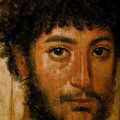Forum Replies Created
-
AuthorPosts
-
August 5, 2024 at 10:59 pm #22461
 DjehutiParticipant
DjehutiParticipantThat election WAS stolen, however in a perfectly normal election the result is still non legitimate, because the necessary conditions are never met: voters with common interests (not some wanting to destroy the nation, others to protect it, imagine that in a group of doctors deciding on what to do with a patient); a proper access to relevant information and the means to understand it in ALL voters; a personal economical interest in the best outcome for the country, and not for your faction; and a way to monitor and sanction the government every day. All that was real in real democracy, that is, Athens or the Allthing, with small, ethnically homogeneus groups of people. But not possible in Modern monster nations. It could never happen. Instead we got industrial farms where we are managed, milked, and sacrificed.
August 5, 2024 at 4:05 pm #22458 DjehutiParticipant
DjehutiParticipantThe Theatre of the world is optional
We don´t (always) need to see reality through the lens of the Theatre of the World. When Shakespeare wrote the verses of “all the world is a stage”, he was noticing how our personal and collective identities were apparent and transient and useful as roles that moved the plot farther, but vanishing like all things not fundamental vanish. The once-called “Spanish Shakespeare”, Calderón de la Barca, wrote also a play titled “La vida es sueño”, exploring a similar theme but using dreaming as the metaphor.
However, a thing that is ephemeral and illusory is not unreal; the historical play and the roles human life is giving in them are in some way authentic, because they are genuinely lived and they have deep consequences that go way beyond the scope of the play.
The “Theatre of the World” is a part of our natural interface as a species, built upon primate traits and social roles, but developed to be made fit for the civilized stage we have run into in the last millennia: the “world as a book” mindset.Like anything else in the interface, this “narrative map” is not literally real; but it makes possible for humans to survive and to act upon the world we live in at different levels. The Theatre of the world is the part that represents social life as a story, with beginning and end, and a plot that unfolds and is periodically resolved in a climax. The play includes good and evil, and characters with “free will” that incarnate good and evil for us. The Civilizatory part contributes literary traits, like linear time, an end of the world, and omniscient, all-powerful supernatural writers outside the world scene.
The story, is purpose, the free-willed personae and super-personae and their good/evil predicament are all still fictional, not literally real.
Why we need the Theatre of the World then? Well, we use it to enact social routines and process information in a way that can be streamlined, modeled, transmitted by society and by ourselves. And even more importantly, it focuses our behaviour and attention. The purpose of optimising and focusing is to help survival: Survival not only of organic bodies and individual psyches; but the whole social project and its involvement in the broader schemes that span millennia.
The ultimate purpose of this drama plays is the need to create axis centres that bring together the energy required for manifestation, for creating anything. That´s the whole mystery for the sometimes weird story-building: to keep alive those flames that cook something of value in the social sphere; be a person, a city, a school of thought, whatever.
If we know that this asymmetry of value or “anchoring of social effort” is physically needed -just like soil needs seeds to grow plants or a river basin an original depression in the ground to build itself- we can separate ourselves from the “Theatre of the world” rationally.
For instance: we don´t need to consider that a certain people are “chosen” or “something else”, and that other people standing in the way of their prosperity are “bad”. We don´t need to draw legitimacy to work for our own preservation and development, from any narrative other than the raw fact, which is, that´s how evolution takes place. Entities try to survive for their own very benefit, and necessarily at the expense of others.
This fundamental “selfishness” is neither good nor bad; it´s just necessary if you want life to emerge and develop. What is necessary can not be qualified; for example, it makes sense to say that drinking wine is desirable or undesirable, but not that drinking water is “good”.
These formative constraints that we are all resisting as they shape us, only work and produce their miracles if we indeed offer a centre that tries to survive and live on. You mind your own business and Nature will impose is sieve upon everybody to preserve, not what is fittest or best, but what it is possible.
Thus, for any given ethnicity or society, anybody else is either friend or enemy, depending on how their own thing is helping us to cross “the possible” line or they will be an obstacle. So it is not about being “good” or “bad” in absolute terms, we are all destined to be good or bad for everybody else and it is not a moral quality but instrumental.
It is also not a choice: you don´t choose to be someone´s friend or foe, but to survive or not; and if you want to survive and thrive, the discrimination of who are your good guys and bad guys will follow from the causal landscape that will make your path and their paths come together or collide.
There are some others re-arrangements of our categories of the world that are made possible by thinking outside the “Theatre of the World”. These new possibilities for our thinking and acting are crucial in our dark, challenging times, because they provide the room and dispersion that our minds need to explore and seek new possible solutions to the most gargantuan threats that Earth and Man have ever experienced.
I know that thinking outside this box, even in “hypothetical terms” is hard. However it is not super-human. I know this because most of my life I have been very deep into the “theatre of the world”, very much so, a real activist and utopian always musing on the play. However I eventually found out that you can think outside the Theatre of the World parameters safely, without compromising what really matters to you in the slightest.
August 4, 2024 at 8:22 pm #22449 DjehutiParticipant
DjehutiParticipantI have noticed too: propagandistic cinema in the past was sometimes very political, but much better than anything we have now in terms of creativity or artistic merit. You can watch Nazi or Soviet films without favouring Nazism or Communism, and enjoy them. Also the religious cinema (I´m not a believer) contains messages that are bullshit, however it generated masterpieces sometimes, like the one about St Francis´life.
It also happens in plastic art. “Degenerate art” in the first half of the XXth century was not degenerate at all, it just mirrored the times and the zeitgeist. The artists themselves were degenerates of course, but not the art. However nowadays you don´t even get that. It is just fake and ugly. It is still a mirror of the times we live in, in which everything is fake and shallow. There are still great artists in all kind of genres, even female artists, they just don´t get the media attention.
-
This reply was modified 12 months ago by
 Djehuti.
Djehuti.
July 30, 2024 at 9:01 pm #22398 DjehutiParticipant
DjehutiParticipantThe ending to the Little Mermaid is tragic because those folk stories are meant to be, to express that the Sea and the Earth are separate realms, also Civilization and Wild nature, and the land of the living and the land of the dead (the Sea and the Earth can be seen as both depending on your viewpoint). The Little Mermaid is very human in the sense that she´s a Hybrid, able to communicate with both sides. Just like humans can communicate with animals and with machines.
July 30, 2024 at 8:54 pm #22397 DjehutiParticipant
DjehutiParticipantI recently purchased a subscription to http://www.easterneuropeanmovies.com . The website gives you access to old movies from Eastern Europe, including Soviet films. I hope they add more films in the future, but the ones currently available are already interesting and good. There are fairy stories that are delightful, they remind me of my childhood because in Spain Eastern movies and even tv series from Czechoslovakia or Germany were popular. All these films have White people, and Western values; such as respect for nature or personal freedom. The ones that are not moral are also important, because they show the problems that the old faith and the old mores can not help us with and need addressing.
July 29, 2024 at 9:24 pm #22375 DjehutiParticipant
DjehutiParticipant“Snow White was terrible. teaches boys to fawn over women because they are beautiful” I don´t remember Disney Snow White so well now, but as a kid I liked to read fairy tales. My mum bought me the Andersen´s stories that were ilustrated by the amazing Arthur Rackhman, and I read many others. They were tipically a lot more sinister and cruel than Disney´s versions. However they are rich in meaning and symbolism.
I don´t think that Men just fawn over women´s beauty; we die for it, either by invading countries to rape or take their women, or trying to protect these women from the invaders. This is not stupid or Paleolithic, because Beauty is not looks: it´s Darwinian fitness, ethnic identity, many generations of socially virtuous mating, and symbolic value. The sexy and elegant appearance is just the flag that betrays all that treasure, that is what we really need for survival. The Snow White story is about that in many different layers of understanding beyond the mere human, ultimately the Cosmos being aware of itself.
July 26, 2024 at 9:57 pm #22363 DjehutiParticipant
DjehutiParticipantThe problem as John 1982 pointed out, is that women in general are not interested in politics; or in fact anything that they can not associate to sex, body image, kids, socializing. So to get them interested in meeting men online you need to have contents that are appealing to them, and some influencer that advertises it.
For White Date to reach critical mass and grow fast, maybe it would be a good idea to organise real life events. Where I live is really impossible, however I´m sure that some of you would be able to gather a nice crowd for a concert or festival. That could become the spark that ignites the fire. Maybe it´s up to you guysJuly 26, 2024 at 2:00 pm #22360 DjehutiParticipant
DjehutiParticipantThe cultural children of those old Disney productions are Japanese anime feature films. Disney was the inspiration for manga cartoons, as all mangaka recognize, to the point of imitating the style of the images. Akira Toriyama, who sadly passed away recently, credited 1001 Dalmatians as the original spark for his desire to become an artist, and also Osamu Tezuka´s Atom boy, who in his own turn was fascinated by Disney films and cartoons.
Japanese productions like Miyazaki´s “The boy and the Heron” or “Spirited Away” are the real “Disney films” of the last decades. Plus, Japanese authors show a genuine, respectful admiration for Western culture and literature that Westerners themselves are not allowed to have nowadays. -
This reply was modified 12 months ago by
-
AuthorPosts









